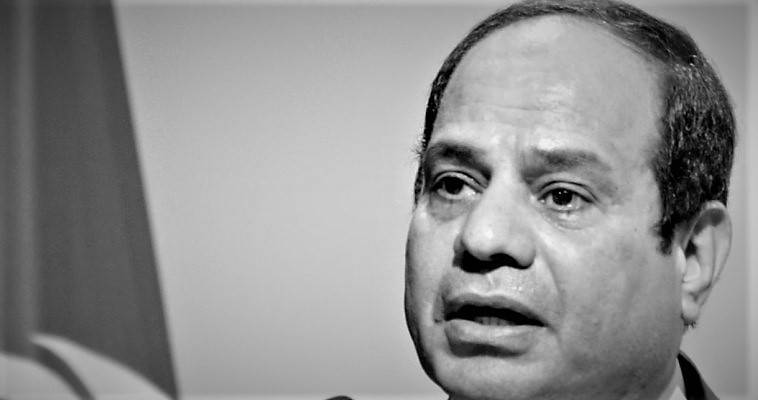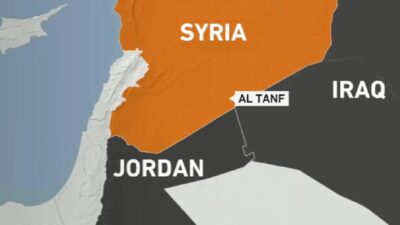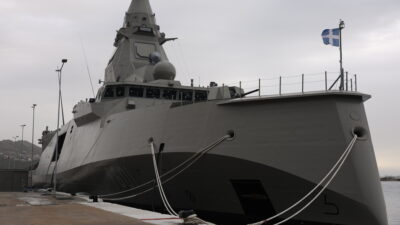Giorgos Lykokapis: The “seven plagues” of “Pharaoh” Sisi
19/06/2020
It seems really paradoxical, but it was the “tiny” United Arab Emirates that saved the military honor of the Arab world in the Libyan crisis. It was Abu Dhabi’s air force that had operationally assisted Khalifa Haftar’s forces on the “hot” Libyan front. Sisi’s Egypt, the largest military power in the Arab world, although supporting Haftar, has avoided (at least so far) a direct military engagement.
Earlier, there were some rumors circulating on the internet about Egypt’s imminent military intervention in Libya, which never came to fruition. The Egyptian government has limited itself to presenting a ceasefire plan, which was immediately rejected by the Sarraj regime and its ally Turkey. While everyone expected Cairo to respond to this indecorous insult, the Egyptian government was content with some telephone conversations with the French president and the Russians.
As for Turkey, with its lightning invasion of northern Iraq to the detriment of the Kurds, it reminded everyone of its true intentions. Neo-Ottoman Turkey is eyeing parts of the territory of Syria and Iraq, while it is determined to impose itself as an armed champion of the Sarraj regime in Libya, a country with which it has no land borders.
Egypt (bordering Libya’s eastern territory controlled by Haftar’s forces) has so far watched the turn of events mostly in amazement. At the same time, anger against Turkey is growing in the country, following a video showing Sarraj paramilitaries humiliating Egyptian workers arrested after the capture of Taruna.
Is a Egypt-Turkey rapprochement in the cards?
“What job does the ambassador of Sarraj still have to do in Egypt?” Is the question asked by several Egyptian officials. The question could be posed as follows: “What exactly is Sisi waiting for to intervene”? Sisi, who had bet on Haftar’s occupation of Tripoli, seemed be “simply presiding” as Erdogan has turned Western Libya into a Turkish protectorate and the Sarraj government into a puppet of Ankara and the Libyan Muslim Brotherhood.
There is a sense that part of the Egyptian establishment is expecting a future rapprochement with Turkey. The director of the pro-government newspaper Al Ahram (the “voice” of the deep state since Nasser’s time) had proposed “eight steps” to normalize relations between the two countries, in a revealing article published in mid-May.
Stavros Lygeros recently revealed that the diplomatic establishment of the Egyptian Ministry of Foreign Affairs has similar views, which affects the key issue of the delimitation of the EEZ with Greece. We could argue that an Egypt-Turkey rapprochement today seems unthinkable, as relations between the two countries are almost at war, following the coup d’état of the Muslim Brotherhood, close allies of Erdogan, in 2013.
The “open wounds” of the Sisi regime
In recent decades, however, the signing of a peace treaty with Israel has seemed unthinkable, with a country at the forefront of all Arab-Israeli wars. The Turkish opposition’s openings to Egypt, often led by Kemalist leader Kilincaroglu, have certainly not gone unnoticed by the wing of the Egyptian regime, which appears to be counting on a “post-Erdogan” Turkey.
But the Libyan crisis is just the tip of the iceberg, in a series of “wounds” that threaten to destabilize the regime, most recently the coronavirus pandemic, which has brought the Egyptian state to the brink of paralysis. It is noteworthy that the government media have launched a campaign against the country’s doctors, who are accused of “betrayal”, due to the complaints they have made about the serious shortcomings of the health system, which led to the death of several of their colleagues.
Another open wound is Sinai. Although the regime has banned the Muslim Brotherhood since 2013, it is still unable to control Sinai, where extremist jihadist groups operate. Indicative of the weakness of the Egyptian security forces is that they were forced to resort to the cooperation of local tribes, ignoring their criminal activities (smuggling).
The “Grand Ethiopian Renaissance Dam (GERD)“
But what Sisi truly fears is the “Grand Ethiopian Renaissance Dam (GERD)” designed by Addis Ababa on the Nile. Sisi fears that the construction of the dam will bring Egypt face to face with serious water shortages and food problems. Indicative of the seriousness of the situation is that the Egyptian president himself had characterized, from the UN stage, the construction of the dam as a “threat” to his country, with the Ethiopian government rejecting his allegations.
If we add to this the chronic problems of the Egyptian economy, which survives thanks to the “invigorating injections” of Saudi Arabia and the United Arab Emirates, the action of the illegal networks of the Muslim Brotherhood, but also the vicious memories of the Six Day War and the failure of Nasser in Yemen, we can understand Sisi’s caution against Erdogan’s war cries.
The Egyptian president does not seem to be affected by the pressure he is under for a rapprochement with Turkey. At the same time, however, he does not seem capable of overcoming the insecurities of his regime and resolutely opposing Turkish intervention on the Libyan front. It is indicative that in the issue of the delimitation of the EEZ with Greece, those, in Cairo, who believe that they should not close the door to Turkey have the upper hand.





